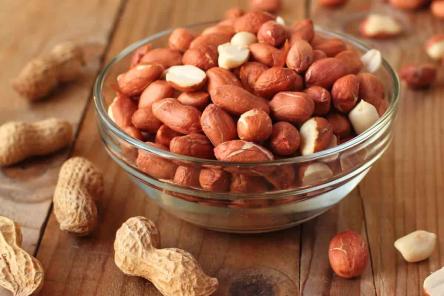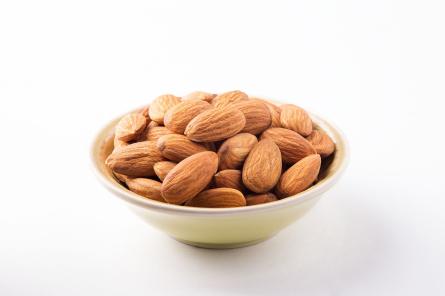When a seemingly harmless snack like peanuts triggers a dry cough, it can be a baffling and uncomfortable experience for many. However, the association between dry cough and peanuts is not uncommon. In this comprehensive guide, we delve into the intricate relationship between these two, exploring the causes, symptoms, and effective management strategies for individuals facing this challenge. **Understanding Dry Cough and Peanuts** Dry cough is a common respiratory symptom characterized by a persistent, non-productive cough that does not produce any mucus or phlegm. On the other hand, peanuts are a popular and nutritious legume that is enjoyed in various culinary forms across the globe. While both may seem unrelated at first glance, the connection between dry cough and peanuts becomes evident in individuals who exhibit peanut allergies or sensitivities. **Causes of Dry Cough from Peanuts** One of the primary reasons why peanuts can trigger a dry cough is due to peanut allergies. Peanut allergies are one of the most common food allergies, affecting both children and adults. When an individual with a peanut allergy consumes peanuts or inhales peanut particles, their immune system mounts an exaggerated response, producing antibodies that release chemicals like histamine. This release of histamine can lead to inflammation in the airways, causing symptoms such as coughing, wheezing, and shortness of breath.

.
 In addition to allergies, some individuals may experience a dry cough from peanuts due to sensitivities or intolerances. While not as severe as an allergy, food sensitivities can still lead to uncomfortable symptoms, including coughing. Peanuts contain certain compounds that may irritate the respiratory system in sensitive individuals, triggering a dry cough as a defensive response. **Symptoms of Dry Cough from Peanuts** The symptoms of a dry cough triggered by peanuts can vary in intensity and duration. Common symptoms include: 1. Persistent dry cough 2. Wheezing or difficulty breathing 3. Chest tightness 4. Throat irritation 5. Itchy or swollen throat 6. Runny or stuffy nose It is essential to pay attention to these symptoms and seek medical advice if they persist or worsen after peanut consumption. **Diagnosis and Testing** If you suspect that your dry cough is related to peanuts, it is crucial to consult a healthcare provider for proper diagnosis and testing. Allergy testing, such as skin prick tests or blood tests, can help identify specific allergens like peanuts that may be triggering your symptoms. Additionally, your healthcare provider may recommend a food diary or elimination diet to pinpoint the underlying cause of your dry cough. **Management Strategies** Managing a dry cough triggered by peanuts involves a combination of avoidance strategies, treatment options, and lifestyle modifications. Here are some effective management strategies to consider: 1. Avoiding peanuts and peanut products: The most straightforward way to prevent a dry cough from peanuts is to eliminate peanuts and peanut-containing foods from your diet. Be vigilant about reading food labels and asking about ingredients when dining out. 2. Medications: Your healthcare provider may prescribe antihistamines, bronchodilators, or corticosteroids to alleviate symptoms like coughing and wheezing.
In addition to allergies, some individuals may experience a dry cough from peanuts due to sensitivities or intolerances. While not as severe as an allergy, food sensitivities can still lead to uncomfortable symptoms, including coughing. Peanuts contain certain compounds that may irritate the respiratory system in sensitive individuals, triggering a dry cough as a defensive response. **Symptoms of Dry Cough from Peanuts** The symptoms of a dry cough triggered by peanuts can vary in intensity and duration. Common symptoms include: 1. Persistent dry cough 2. Wheezing or difficulty breathing 3. Chest tightness 4. Throat irritation 5. Itchy or swollen throat 6. Runny or stuffy nose It is essential to pay attention to these symptoms and seek medical advice if they persist or worsen after peanut consumption. **Diagnosis and Testing** If you suspect that your dry cough is related to peanuts, it is crucial to consult a healthcare provider for proper diagnosis and testing. Allergy testing, such as skin prick tests or blood tests, can help identify specific allergens like peanuts that may be triggering your symptoms. Additionally, your healthcare provider may recommend a food diary or elimination diet to pinpoint the underlying cause of your dry cough. **Management Strategies** Managing a dry cough triggered by peanuts involves a combination of avoidance strategies, treatment options, and lifestyle modifications. Here are some effective management strategies to consider: 1. Avoiding peanuts and peanut products: The most straightforward way to prevent a dry cough from peanuts is to eliminate peanuts and peanut-containing foods from your diet. Be vigilant about reading food labels and asking about ingredients when dining out. 2. Medications: Your healthcare provider may prescribe antihistamines, bronchodilators, or corticosteroids to alleviate symptoms like coughing and wheezing.
..
 These medications can help reduce inflammation and improve respiratory function. 3. Allergy shots: In cases of severe peanut allergies, allergen immunotherapy or allergy shots may be recommended to desensitize the immune system to peanuts gradually. This can help reduce the severity of allergic reactions and associated symptoms. 4. Emergency preparedness: If you have a known peanut allergy that triggers a severe reaction like anaphylaxis, it is essential to carry an epinephrine auto-injector (such as an EpiPen) at all times and educate those around you on how to use it in case of an emergency. 5. Air purifiers: Investing in a high-quality air purifier can help remove airborne peanut particles from your living space, reducing the risk of inhaling allergens that could trigger a dry cough. **Conclusion** In conclusion, the connection between dry cough and peanuts can be attributed to peanut allergies, sensitivities, or intolerances in susceptible individuals. Understanding the causes, symptoms, and management strategies for a dry cough triggered by peanuts is crucial for effective symptom relief and improving overall quality of life. By following appropriate precautions, seeking medical guidance, and adopting proactive management strategies, individuals can better navigate the challenges posed by peanut-related coughing episodes. Remember, always prioritize your health and well-being by addressing any concerns or symptoms with a qualified healthcare provider.
These medications can help reduce inflammation and improve respiratory function. 3. Allergy shots: In cases of severe peanut allergies, allergen immunotherapy or allergy shots may be recommended to desensitize the immune system to peanuts gradually. This can help reduce the severity of allergic reactions and associated symptoms. 4. Emergency preparedness: If you have a known peanut allergy that triggers a severe reaction like anaphylaxis, it is essential to carry an epinephrine auto-injector (such as an EpiPen) at all times and educate those around you on how to use it in case of an emergency. 5. Air purifiers: Investing in a high-quality air purifier can help remove airborne peanut particles from your living space, reducing the risk of inhaling allergens that could trigger a dry cough. **Conclusion** In conclusion, the connection between dry cough and peanuts can be attributed to peanut allergies, sensitivities, or intolerances in susceptible individuals. Understanding the causes, symptoms, and management strategies for a dry cough triggered by peanuts is crucial for effective symptom relief and improving overall quality of life. By following appropriate precautions, seeking medical guidance, and adopting proactive management strategies, individuals can better navigate the challenges posed by peanut-related coughing episodes. Remember, always prioritize your health and well-being by addressing any concerns or symptoms with a qualified healthcare provider.
…
 **Potential Complications and Precautions** While managing a dry cough triggered by peanuts is essential, it is also crucial to be aware of potential complications and take necessary precautions to prevent adverse reactions. Some individuals with peanut allergies may experience more severe symptoms, such as anaphylaxis, a life-threatening allergic reaction that requires immediate medical attention. Symptoms of anaphylaxis can include difficulty breathing, swelling of the throat, a rapid drop in blood pressure, and loss of consciousness. If you or someone you know shows signs of anaphylaxis after consuming peanuts, do not hesitate to seek emergency medical care. To prevent complications and ensure your safety, consider the following precautions: 1. Carry an epinephrine auto-injector: If you have a known peanut allergy, carrying an epinephrine auto-injector, such as an EpiPen, is essential. This device can be life-saving in the event of a severe allergic reaction and should be readily accessible at all times. 2. Wear a medical alert bracelet: Wearing a medical alert bracelet that identifies your peanut allergy can help healthcare providers administer appropriate treatment in case of an emergency. 3. Educate others: Inform family members, friends, colleagues, and caregivers about your peanut allergy and how to recognize and respond to allergic reactions. Clear communication and awareness among those around you can help prevent accidental exposure to peanuts. 4. Stay informed: Stay updated on food labeling practices, ingredient lists, and potential sources of hidden peanuts to avoid unintentional exposure. Being proactive and informed can help you make safe food choices and prevent allergic reactions.
**Potential Complications and Precautions** While managing a dry cough triggered by peanuts is essential, it is also crucial to be aware of potential complications and take necessary precautions to prevent adverse reactions. Some individuals with peanut allergies may experience more severe symptoms, such as anaphylaxis, a life-threatening allergic reaction that requires immediate medical attention. Symptoms of anaphylaxis can include difficulty breathing, swelling of the throat, a rapid drop in blood pressure, and loss of consciousness. If you or someone you know shows signs of anaphylaxis after consuming peanuts, do not hesitate to seek emergency medical care. To prevent complications and ensure your safety, consider the following precautions: 1. Carry an epinephrine auto-injector: If you have a known peanut allergy, carrying an epinephrine auto-injector, such as an EpiPen, is essential. This device can be life-saving in the event of a severe allergic reaction and should be readily accessible at all times. 2. Wear a medical alert bracelet: Wearing a medical alert bracelet that identifies your peanut allergy can help healthcare providers administer appropriate treatment in case of an emergency. 3. Educate others: Inform family members, friends, colleagues, and caregivers about your peanut allergy and how to recognize and respond to allergic reactions. Clear communication and awareness among those around you can help prevent accidental exposure to peanuts. 4. Stay informed: Stay updated on food labeling practices, ingredient lists, and potential sources of hidden peanuts to avoid unintentional exposure. Being proactive and informed can help you make safe food choices and prevent allergic reactions.




Your comment submitted.